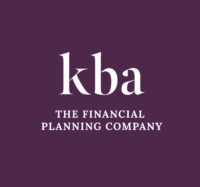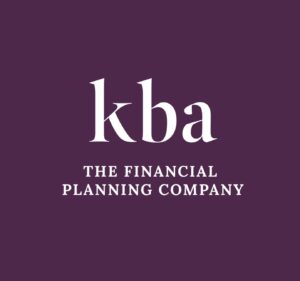By the time retirement appears on your horizon, you’ll have worked for multiple decades – often 40 years or more.
During this time, you’ll have built your career, enjoyed regular incremental increases (or more) in your take-home pay, and earned respect from colleagues and peers.
Hopefully, you’ll also have been diligent about saving, investing, and growing your wealth to fund your retirement. So, you might afford to fulfil all the daydreams that have helped you get through some of the hardest days at work.
No matter how you look at it, or how much you’ve relished your career, it’s taken a lot of graft.
And yet, some people appear to head into retirement hoping for the best but with no real idea of how much income they’ll need to enjoy life once they’re no longer working for a living.
3 in 4 people have done very little, if any, retirement planning – are you one of them?
According to research from Standard Life, 3 in 4 people have done very little, if any, retirement planning.
And this is only one of several alarming statistics.
The report also revealed that:
- 1 in 6 (16%) say they rely on guesswork or instinct to figure out how much they’ll need for a financially secure retirement
- 2 in 5 (39%) admit they haven’t worked out how much they’ll need at all (this figure includes 43% of Gen Xers and 34% of Baby Boomers, who are often already approaching or past State Pension Age).
Knowing what you have coming in and going out each month can bring valuable peace of mind, allowing you to relax and enjoy your retirement without worrying about money.
You’re likely to find a significant difference in your budget when you retire compared with when you’re working.
5 key considerations when working out how much you’ll need to fund your retirement
1. Reassess your regular weekly spending
Calculating your essential household expenditure should be top of your list when planning for retirement.
You may start to see changes to your regular outgoings in the years leading up to your retirement. For example, you might finish paying off your mortgage or your children may fly the nest. If so, your household spending may be lower than it’s been in years.
If you’ve regularly travelled to work in your car or by train, once you’re no longer working, you may save on travel costs.
Of course, this will depend on how you intend to spend your retirement. You may end up taking longer trips more frequently, which could cost more than your previous daily commute.
Finally, consider how your household bills might alter when you retire. If you spend more time at home, you’ll likely use more electricity and gas, causing your monthly bills to rise. So, remember to account for this.
2. Factor in any loss of potentially valuable work perks
If you currently drive a company car or have private medical cover or life insurance through your employer, it’s important to factor in the cost of replacing these workplace benefits before you retire.
Depending on where you live and what your local transport links are like, you may decide you’re happy to do without a car, especially if your work involved a lot of time behind the wheel.
If you’re content to rely solely on the NHS, you may not be too worried about losing medical insurance.
Whatever your intentions, review what you’ll be giving up once you leave work and make sure you’re content and ready to let go of your employee benefits.
3. Consider your desired retirement lifestyle
Once you know how much you’ll need to cover your monthly essentials, it’s time to figure out how much you’ll need to live the life you want and have fun when you retire.
Perhaps you’ve extensive plans for world travel, or wish to enjoy lap-of-luxury holidays.
Maybe you want to move house and relocate to live closer to family.
Whatever you desire for your retirement years, it’s important to work out how much you’ll need to meet your expectations.
If you’re not yet sure how you’ll spend your time in retirement, now’s the time to start dreaming and planning.
At this stage, no dream is too big – the world is your oyster!
Once you have a plan in mind, calculate whether your retirement lifestyle will be more expensive than your working life. Make sure you’ll have enough to pay the bills with enough left over to live your dreams.
For bigger expenses, such as buying a new car or paying for extensive home renovations, it may be helpful to set out a timeline of what you want to do and when. This might help you to plan ahead for any sporadic increase in expenditure.
Finally, don’t forget to include the small lower cost treats and activities you expect to enjoy. Meals out, day trips, gym or club memberships all add up, so make sure they feature in your budget.
4. Don’t forget to consider these important aspects
When budgeting for your retirement, you’ll also need to think about:
- Where and when to draw your retirement income
- Making full use of all your tax allowances
- Contingency plans for how you’ll pay for care later in life
- How and when you’ll pass your wealth on to your family and loved ones.
With so much to think about, it’s a good idea to talk things through with a financial planner…
5. Speak to a financial planner
Speaking with someone who understands all elements of retirement planning can help you set out a sound strategy to fulfil all your goals.
Indeed, having a conversation well ahead of your retirement may allow crucial time to adapt your plans so you can enjoy the lifestyle you hope for.
Returning to the Standard Life research, 7 in 10 people who have taken financial advice believe their adviser has helped to improve their standard of living. And 77% of people who see their adviser regularly say they’re financially better off thanks to the advice they’ve received.
It’s never too soon to plan for the future you want – and with our financial planning expertise, we can help turn your dreams into a reality.
Get in touch
If you’re approaching retirement and would like help to organise your finances, please get in touch.
Email contactme@kbafinancial.com or call us on 01942 889 883.
Please note
This article is for general information only and does not constitute advice. The information is aimed at retail clients only.
All information is correct at the time of writing and is subject to change in the future.
The value of investments and any income from them can fall as well as rise and you may not get back the original amount invested.
Approved by The Openwork Partnership on 07/07/2025.



